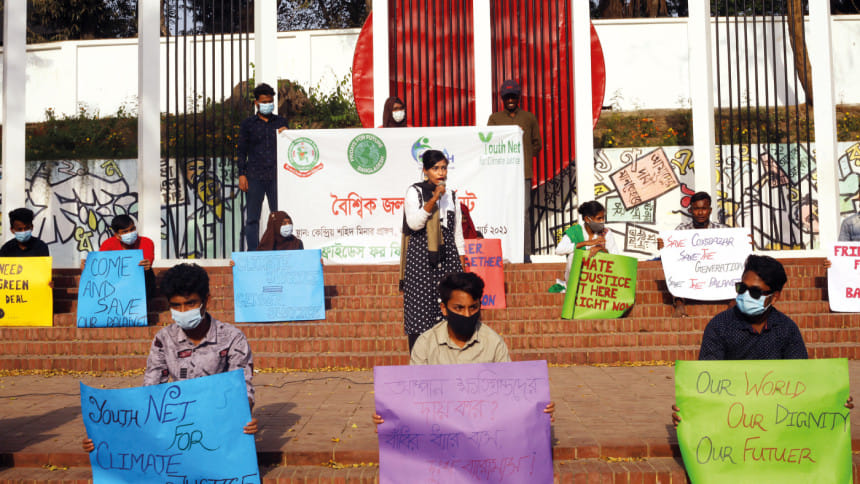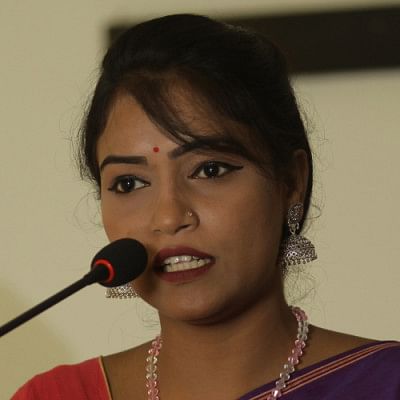Bangladeshi youth at the forefront of the climate movement


"While conducting surveys in the coastal areas, I realised how climate change was at the root of issues like lack of education, malnutrition, and soaring child marriage rates. However, 'climate change' is not a term that the masses are familiar with. I could not go up to the people alone and raise awareness about it. So, I formed a team and co-founded YouthNet for Climate Justice," shares 27-year-old Shakila Islam from Barishal. YouthNet for Climate Justice is a coastal youth-led movement that is now the largest network for climate advocacy in Bangladesh.
When she was only 12 years old, Shakila and her family were hit by Super Cyclone Sidr, which affected more than eight million people in the country. Since then, she has been passionate about tackling the climate crisis and its multisectoral impacts.
"Climate change is not just an environmental, economic or development problem; it is also a gender, human rights and social justice issue," says Shakila.
Since 2016, YouthNet for Climate Justice has been implementing various campaigns to establish the rights of people affected by climate change in the southern regions of Bangladesh. So far, they have mobilised two thousand volunteers and served 50 thousand members of marginalised communities across 40 districts. In 2018, they received the Joy Bangla Youth Award for their efforts.
"Although we are one of the countries most vulnerable to climate change, we only contribute to global emissions by around 0.3 percent. This is a climate justice issue that must be brought up on global platforms," shares Shakila. Not only did she represent Bangladesh at the Nairobi Summit on ICPD25's Sexual and Reproductive Health and Rights (SRHR) and climate session, but she also was a founding member of Fridays for Future Bangladesh, in line with the global climate strike movement led by Greta Thunberg.
YouthNet for Climate Justice has also created a Coastal Youth Action Hub that promotes innovative solutions to adapt to climate change issues. "It is not possible to always migrate from coastal areas that have been hit by natural disasters. Therefore, we have initiatives to help people adapt to the climate crisis. Women and girls are the most vulnerable to climate issues since there are risks of sexual harassment and child marriage. We help mitigate these risks," says Shakila.
When asked about her future plans, Shakila shared: "When Greta Thunberg started the global climate strike movement, she was only 13 years old. If she can do it, then why can't our Bangladeshi youth? I want to make Bangladesh a role model in tackling climate change."

 For all latest news, follow The Daily Star's Google News channel.
For all latest news, follow The Daily Star's Google News channel. 



Comments